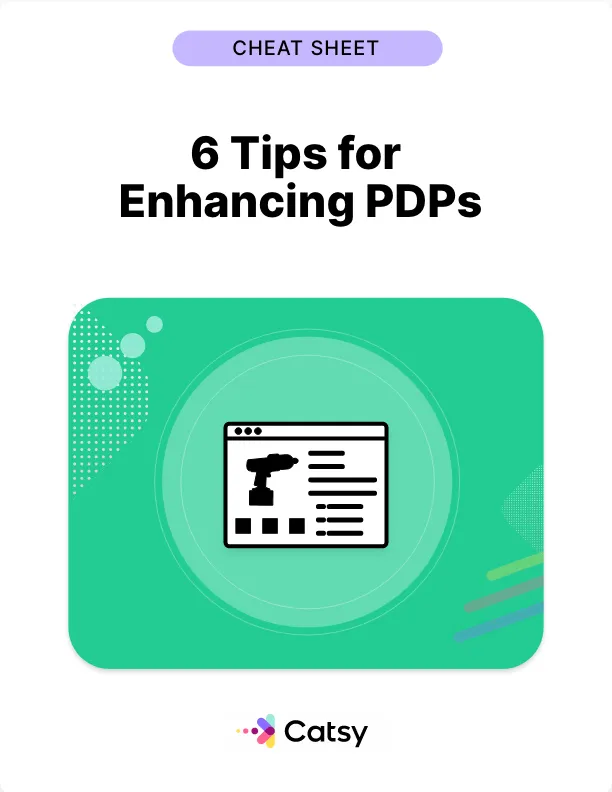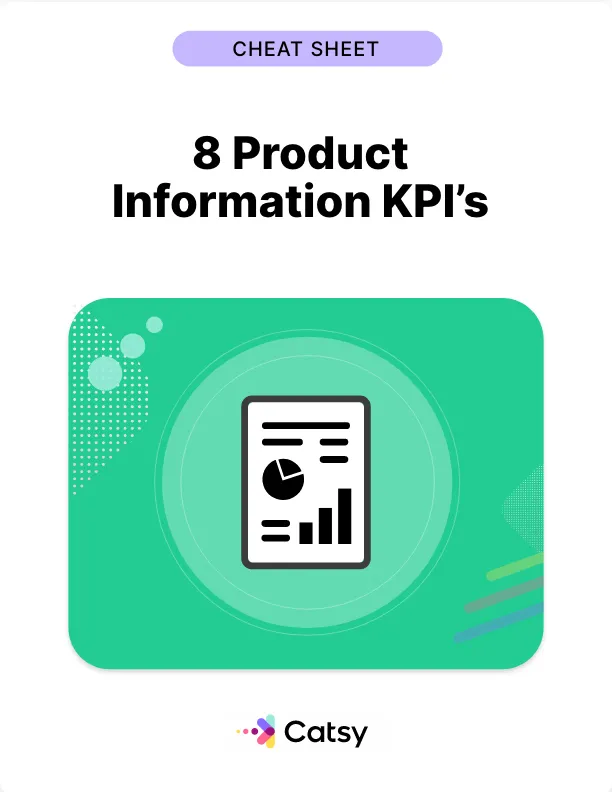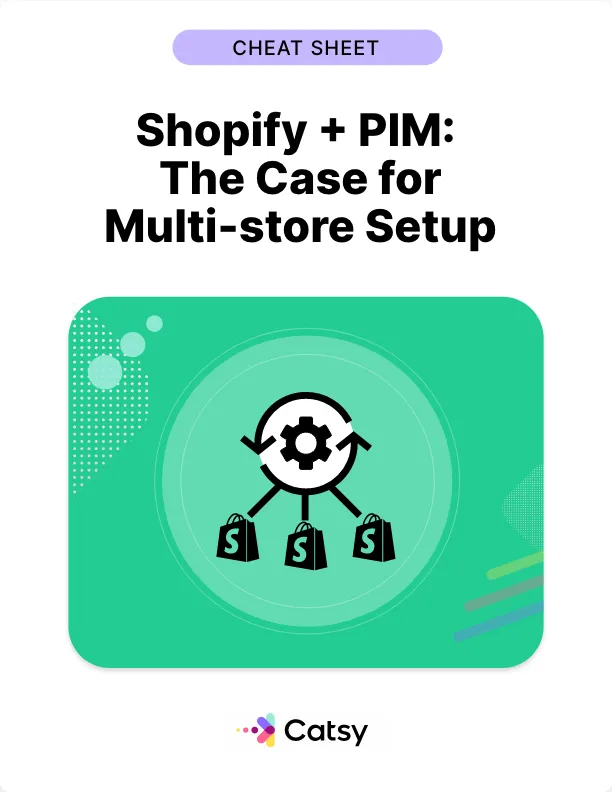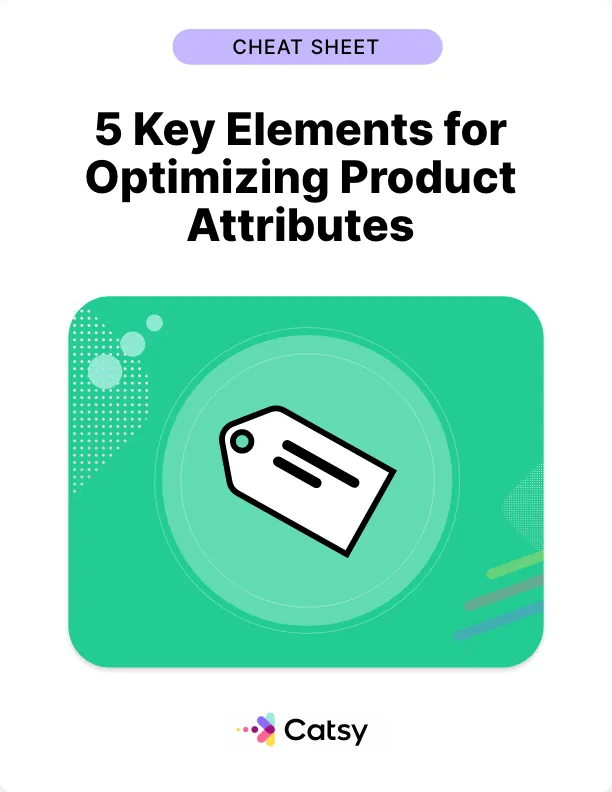Product Categorization: A Guide to Organizing Your Products
March 29, 2021

Getting products to market and selling products faster can be a complex management process, thankfully Catsy is here to help.
PIM stands for Product Information Management (PIM), a crucial component of product experience management. PIM is a product information management software that allows businesses to manage product information and content within a single source of truth. PIM has cloud-native API functionality that centralizes product details, allowing businesses to syndicate product information directly to eCommerce channels.
PIM is software that automates much of the process of preparing items for the eCommerce market. Catsy is an example of a PIM.
PIM is a product information management software that helps businesses manage content for both eCommerce and physical stores. PIM is important because it enables businesses to start selling items on the marketplace faster, reaching more customers (and revenue).
Many teams within a business benefit from a PIM system: product managers, marketers, sales teams, stakeholders, and even customers can use a PIM system within a secure user interface. The largest benefactors of a PIM, however, are marketers.
A PIM Data Model is a data model that provides the foundation for unified and standardized item information. This data model includes information, characteristics, and details about an item in order to drive growth and improve the economic outlook in product-focused organizations.
An ERP is the main source of information that directly feeds a PIM system. In addition to direct ERP integration, many businesses import product information themselves using intuitive mapping tools and import profiles.
Managing product information across multiple systems and spreadsheets can be chaotic and error-prone. PIM systems provide a centralized repository for all information, making it easier to manage and update information across multiple sales channels and platforms. This helps avoid inconsistencies and ensures that all data is accurate and up-to-date.
Distributing product information to various sales channels, such as e-commerce platforms, marketplaces, and distributors, can be time-consuming and prone to inconsistencies. With features like bulk editing and dynamic lists, PIM systems streamline the process of managing large volumes of product data. This not only saves time but also reduces the potential for errors, which are common with manual data handling.
Coordinating between teams and ensuring that information is approved and accurate before it goes live can be challenging. By improving data management workflows, PIM systems reduce the time it takes to get items to market. Faster data processing and optimization mean that they can be launched more quickly, which is critical in the fast-paced digital commerce sector.
Catsy PIM improves data quality through several mechanisms designed to ensure the accuracy, consistency, and completeness of product information. Here’s how it achieves this:
By employing these methods, Catsy PIM significantly enhances the quality of product data, leading to better accuracy, consistency, and reliability of information across all business operations and sales channels.
A Product Information Management (PIM) system can significantly enhance business processes for a small business by centralizing and streamlining product data management. Here are the key business processes a PIM typically puts in place:
By implementing these processes, a PIM system can help small businesses manage their product data more effectively, reduce manual errors, improve collaboration, and enhance the overall efficiency of their operations. This can lead to better customer experiences, increased sales, and a stronger competitive edge.
A Product Information Management (PIM) system offers numerous unique benefits that can significantly enhance business operations, customer experience, and overall efficiency. Here are some of the key advantages:
A PIM system provides a single source of truth for all product information, ensuring consistency and accuracy across all channels. This central repository reduces data silos and makes it easier for employees to access and manage product data effectively.
PIM systems include tools for data validation, cleansing, and enrichment, ensuring that all product information is accurate, complete, and up-to-date. This minimizes errors and discrepancies, leading to better decision-making and enhanced customer trust.
A PIM system enables efficient distribution of product information across various sales and marketing channels, including e-commerce websites, marketplaces, and print catalogs. This ensures that product data is consistent and up-to-date across all platforms.
PIM systems are designed to integrate seamlessly with other enterprise systems such as ERP, CRM, and CMS. This integration facilitates smooth data flow between systems, improving overall operational efficiency and reducing manual data entry efforts.
PIM systems help ensure compliance with industry regulations and standards by maintaining accurate and up-to-date product information. Built-in validation and approval workflows further enhance data governance and reduce the risk of non-compliance.
A Product Information Management (PIM) system is essential for retailers to effectively manage and utilize their product data. Here are the key practical benefits of using a PIM system for retailers:
By implementing these processes, a PIM system can help small businesses manage their product data more effectively, reduce manual errors, improve collaboration, and enhance the overall efficiency of their operations. This can lead to better customer experiences, increased sales, and a stronger competitive edge.
A Product Information Management (PIM) system is essential for businesses that need to manage vast amounts of product data efficiently. Here's a detailed look at the types of businesses that benefit the most from implementing a PIM system:
E-commerce companies, especially those with extensive product catalogs, find PIM systems indispensable. PIM helps these businesses manage, enrich, and distribute product data across multiple sales channels, ensuring consistency and accuracy.
Retailers with both online and brick-and-mortar stores benefit from PIM by centralizing product information. This ensures that all platforms, from in-store displays to online listings, have up-to-date and consistent product data.
Manufacturers often deal with complex product data, including specifications, materials, and compliance information. PIM systems streamline the process of managing this data and ensure it is correctly represented across various channels and partners.
Distributors managing product data from multiple suppliers need PIM to consolidate and standardize this information.
Business-to-business companies require PIM to handle complex product hierarchies and relationships. PIM systems facilitate the management of product information that needs to be distributed across various partners, resellers, and internal systems, enhancing operational efficiency and collaboration.











